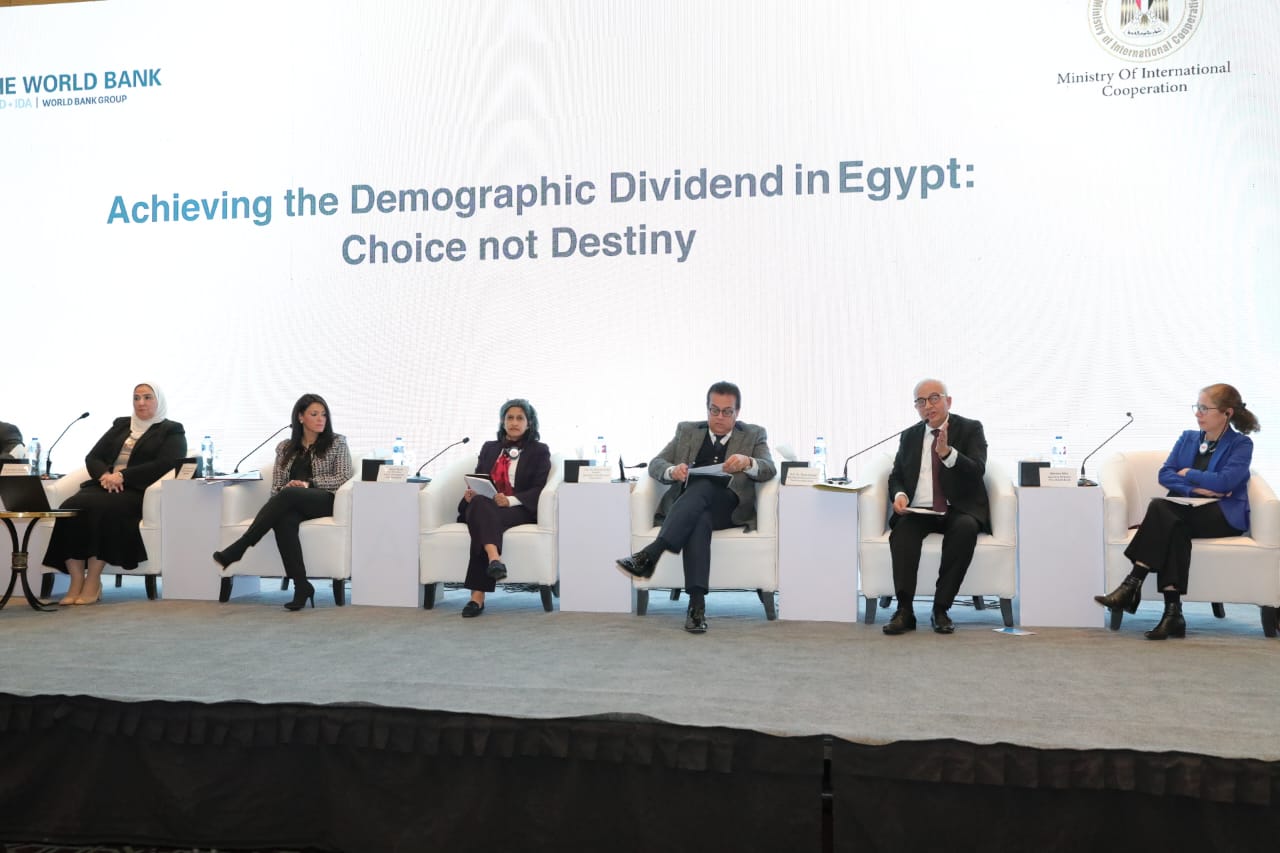The Minister of Education participates in the conference announcing the launch of the World Bank report "Achieving Demographic Gains in Egypt: Choice, Not Destiny"

Dr. Reda Hegazy, Minister of Education and Technical Education, participated in the conference announcing the launch of the World Bank report “Achieving Demographic Gains in Egypt: Choice, Not Destiny” in the presence of Dr. Rania Al-Mashat, Minister of International Cooperation, Dr. Khaled Abdel Ghaffar, Minister of Health and Population, and Nevin Al-Qabbaj, Minister Social Solidarity, Marina Wes, Regional Director for Egypt, Yemen and Djibouti at the World Bank, and Mamta Murthy, Vice President of the World Bank Group for Human Development.
The World Bank report aims to present policies, strategies and priorities that can help Egypt achieve its demographic dividend.
At the outset of his speech, Dr. Reda Hegazy expressed his happiness at participating in this important event, and thanked the World Bank for its fruitful cooperation with the Ministry of Education and Technical Education in a number of projects aimed at developing education, including the development of early childhood and capacity building of teachers.
The minister pointed out that there are many reasons for dropping out of education in Egypt, including the cultural, educational and economic level of the family, as well as the phenomenon of early marriage, stressing the importance of focusing on the causes of the phenomenon of dropping out of education to confront it.
In the discussion session of the conference, Dr. Reda Hegazy reviewed the efforts of the Ministry of Education and Technical Education to confront the phenomenon of dropout from education, explaining that the ministry is working on the axis of accessibility as well as reducing dropouts to bridge the sources of illiteracy and give an opportunity for students who have dropped out of education to join the education train through community education schools. .
The minister pointed out that the ministry is facing a challenge represented by the population increase, which requires an increase in the number of teachers, schools and classes, referring in this regard to the national project for the development of the Egyptian family, which represents an integrated development project aimed at improving demographic characteristics such as education, health, job opportunities, economic empowerment and culture, in addition to to control population growth.
Dr. Reda Hegazy added that the ministry is making great efforts to provide educational services in places that suffer from a severe shortage in the numbers of schools and classes, by providing community education schools in remote areas and second chance schools to accommodate dropouts.
The minister added that the ministry established in 2015 the central administration to address educational dropout, and it was updated in the organizational structure in 2022 under the name of the central administration to combat educational dropout, and its umbrella included the general administration for literacy and adult education, and the ministry worked to organize competitions on reproductive health through the environmental and population education department in cooperation with The Ministry of Health and Population, and the Ministry is currently working on legislation that criminalizes dropping out of education.
Dr. Reda Hegazy added that the Ministry is keen on students acquiring the skills and competencies that qualify them for competition and the labor market, so it worked on developing technical education and expanding in schools of applied technology, and the Ministry is currently preparing a general framework for preparatory stage curricula that focuses on major concepts to urge students to think and research. , so that they become producers of learning and knowledge.
Dr. Reda Hijazi concluded his speech by emphasizing the continuation of reforming the educational system and building on what has been done with the change in implementation mechanisms to suit the challenges facing the development of the system.
